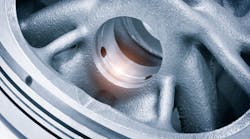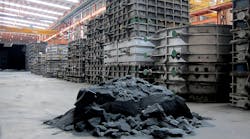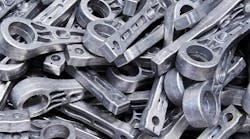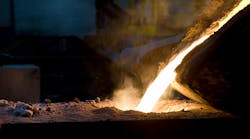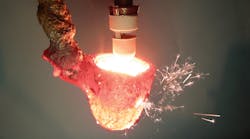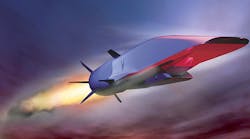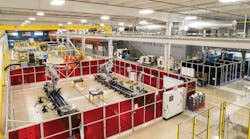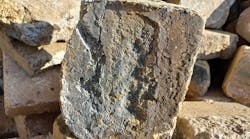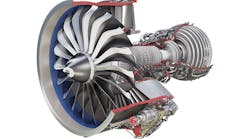Alcoa reports it has inked a long-term contract deal worth over $1.5 billion with GE Aviation, involving jet engine components. The length of the contract was not announced, and GE Aviation has not commented on the deal. According to Alcoa’s list of the plant locations where the parts will be produced, the supply appears likely to include investment castings and parts produced by hot isostatic pressing.
GE Aviation produces turbofan and turboprop engines, along with various critical components of those engines.
The new deal completes a list of long-term deals worth approximately $9 billion with aerospace market customers that Alcoa completed during 2015. That list includes a new $2.5-billion deal with Boeing Commercial Airplanes, announced in December; and an agreement worth $1.1 billion with Lockheed Martin, announced in October.
“We greatly appreciate GE’s continued confidence in Alcoa’s aerospace capabilities, and are proud to support its advanced jet engine programs through this agreement,” stated Alcoa chairman and CEO Klaus Kleinfeld.
Alcoa indicated it would be supplying GE Aviation with parts formed in nickel-based superalloys, titanium, and aluminum for various engine programs. While the supplier did not indicate the types of parts to be produced, the list of operations it identified that will supply the components are all Alcoa Howmet investment casting locations: LaPorte, IN; Whitehall, MI; Hampton, VA; Dover, NJ; Wichita Falls, TX; Winsted, CT; Dives, France; and Laval, Quebec.
Alcoa Howmet produces airfoil and structural castings, integral castings, and structural castings, and also performs related services like hot-isostatic pressing, machining, and specialty coating. In recent months, a $100-million expansion program was completed at the LaPorte plant, and a new, large-dimension hot-isostatic press was announced for the Whitehall plant.
Alcoa has made aerospace a principal object of its organizational strategy over the past four years, investing billions to add capabilities (like titanium alloys and castings via the acquisitions of RTI International Metals and TITAL, both last year) and to expand production capacity.
The aerospace business will be part of the new company of value-adding operations to be formed by a split of the Alcoa assets, later this year.
